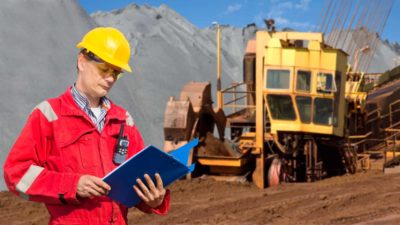The Paladin Energy Ltd (ASX: PDN) share price is rallying on Tuesday following a strong overnight performance for uranium stocks.
At the time of writing, the Paladin Energy share price is up 9.2% to 95 cents.
What's driving the Paladin Energy share price?
Paladin Energy is taking off after a strong overnight performance from the Global X Uranium Exchange Traded Fund (ETF).
The fund provides investors exposure to a broad range of companies involved in uranium mining and the production of mining and nuclear-related components.
The uranium ETF surged 4.72% on Monday night to a record close of US$28.82.
Headlining the overnight gains was news that the world's largest uranium producer, Kazakhstan's Kazatomprom was planning to launch its own physical uranium fund.
Kazatomprom will raise an initial US$50 million from its founders and an additional US$500 million when the fund is up and running.
"The Fund will leverage the combination of Kazatomprom's expertise in the uranium market and NIC's proven track record, with the AIFC offering investors direct exposure to the attractive opportunity presented by the long-term fundamentals of the uranium market and nuclear industry," said Kazatomprom CEO Mazhit Sharipov, according to World Nuclear News.
Physical uranium funds, namely Sprott's Physical Uranium Trust, have helped drive spot prices from multi-year lows of around US$30/lb in August to 9 year highs of more than US$50/lb by mid-September.
This broadly coincides with the Paladin Energy share price skyrocketing to a 9 year high of $1.12 on 17 September.
The strategy of these funds is simple — buy physical uranium off the spot market and store it as a long term investment.
How does this benefit Paladin Energy?
Most ASX-listed uranium shares are either explorers or in possession of projects coming out of care and maintenance.
Paladin Energy is targeting the restart of its "globally significant" Langer Heinrich project, located in Nambia.
The project's first production was in 2007, reaching peak production of 5.6 million pounds of uranium in 2014.
The company estimates restart costs of around US$81 million and is currently progressing the "critical-path elements" to its restart plan.








